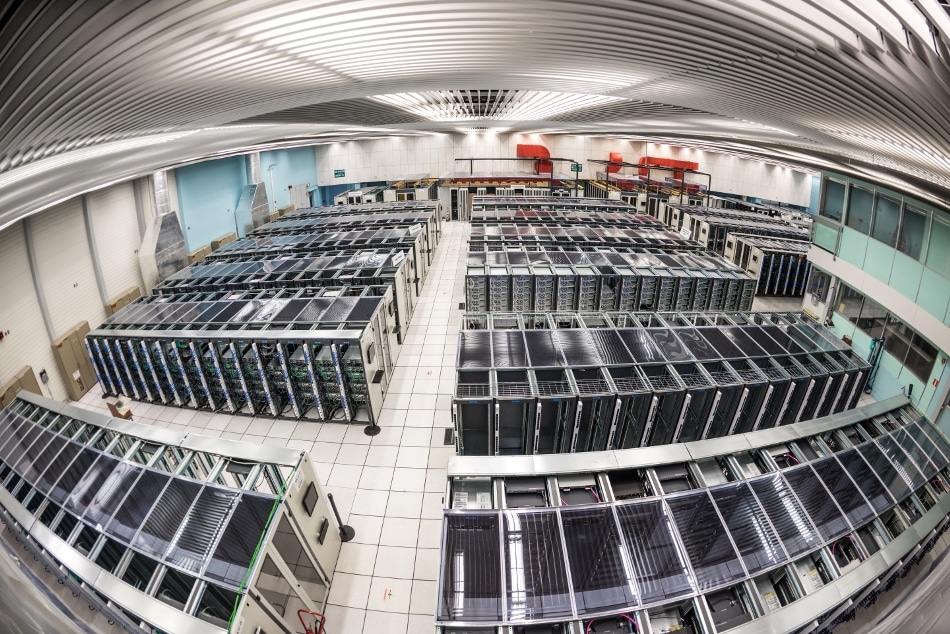Sep 22 2017
A white paper identifying the key ICT challenges that face CERN, the European Organization for Nuclear Research, and other ‘big science’ projects in the upcoming years has been published by CERN openlab.
 CERN Data Centre (Image: CERN)
CERN Data Centre (Image: CERN)
CERN is considered to be home to the Large Hadron Collider (LHC), the most powerful particle accelerator in the whole world. Extreme CT challenges are brought about by the complexity of the scientific instruments at the laboratory, making it perfect for executing joint R&D projects and testing with industry.
An ongoing programme of upgrades and consolidations to the LHC and the experiments performed at CERN will result in largely increased ICT demands in the years to come. The successor to the LHC, the High-Luminosity LHC, has been planned to come online in around 2026. By this time, the overall computing capacity needed by the experiments is projected to be 50-100 times greater than today, with data storage requirements expected to be in the order of exabytes.
CERN openlab focuses on developing and testing the new ICT techniques and solutions that enable making the innovative physics discoveries at CERN possible. It is an exclusive public-private partnership that offers a framework via which CERN will be able to collaborate with top ICT companies in order to increase the development of these forward-looking technologies.
A new three-year phase of CERN openlab is set to commence at the beginning of 2018, and throughout the first half of 2017 work has been executed in order to identify vital areas for future collaboration. A series of discussions and workshops was conducted in order to discuss the ICT challenges experienced by the LHC research community — and various other ‘big science’ projects over the upcoming years. This white paper is considered to be the culmination of all these investigations, and sets out particular challenges that are suitable for tackling via collaborative R&D projects with leading ICT companies.
The white paper identifies 16 ICT ‘challenge areas’, which have been collectively put into four overarching ‘R&D topics’ (data-center technologies and infrastructures, machine learning and data analytics, applications in other disciplines, computing performance and software). Challenges identified include guaranteeing that data center architectures are cost effective and flexible; using cloud computing resources in a hybrid, scalable manner; completely modernizing code, in order to exploit hardware to its extreme potential; ensuring that large-scale platforms are in place to allow global scientific collaboration; and translating the immense potential of machine learning into concrete solutions in a successful manner.
Tackling these challenges — through a public-private partnership that brings together leading experts from each of these spheres — has the potential to positively impact on a range of scientific and technological fields, as well as wider society.
Alberto Di Meglio, Head of CERN openlab
“With the LHC and the experiments set to undergo major upgrade work in 2019 and 2020, CERN openlab’s sixth phase offers a clear opportunity to develop ICT solutions that will already make a tangible difference for researchers when the upgraded LHC and experiments come back online in 2021,” says Maria Girone, CERN openlab CTO.